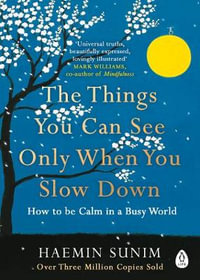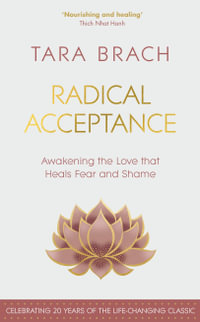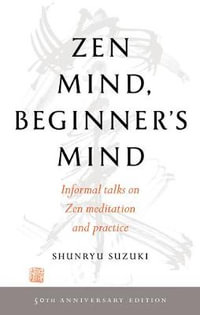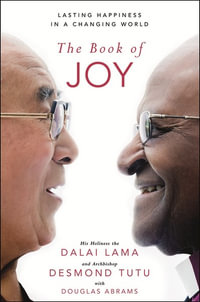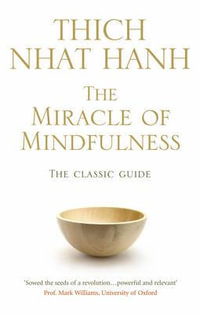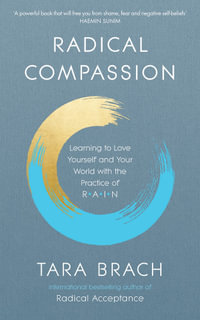
Enlightenment to Go
The Classic Buddhist Path of Compassion and Transformation
By: David Michie
Paperback | 1 August 2010 | Edition Number 1
At a Glance
Paperback
$32.99
Aims to ship in 25 to 30 business days
When will this arrive by?
Enter delivery postcode to estimate
Do you yearn for a greater purpose but are not sure where to find it?
Bestselling author David Michie reveals why an ancient eighth century text might hold the answers for you.
In Enlightenment to Go, best-selling author David Michie explores the ‘world’s first self-help book’ and shares why its wisdom holds the key to cultivating true happiness and a sense of inner peace.
Enlightenment To Go illuminates the teachings of one of the most revered texts in Tibetan Buddhism written 1200 years ago by the Indian sage, Shantideva. Although consistently recommended by His Holiness the Dalai Lama, until now there has been no reader-friendly guide to Shantideva’s work – even though it ranks as one of the world’s great spiritual treasures.
Michie, whose books are sold worldwide and who is renowned for his gift for demystifying Buddhism, was challenged to translate Shantideva’s Guide which he says is extraordinary because it has direct application to our lives today.
‘Human nature hasn’t changed in 1200 years,’ says Michie who spent years researching and writing his new book.
In the first half of Enlightenment to Go, Michie focuses on our perceptions of reality, and shows how we can learn to reframe negative thoughts to better cope with challenges when our lives go awry, when relationships break up or when we don’t get that promotion. Michie says that the way we interpret events is more important than the events themselves – the same wisdom applied by Cognitive Behaviour Therapists today.
In the second part of the book Michie outlines a step-by-step process to achieve personal transformation. He takes us through powerful psychological tools, strategies and guided analytical meditation practices that lead to profound change. Throughout the book Michie uses many examples to show how current scientific research and psychology supports the traditional Buddhist approach described by Shantideva.
Enlightenment To Go is an inspiring book written for busy people seeking not only greater happiness and inner peace, but a genuine transformation in our understanding of who we are and what we value.
David Michie’s earlier books Buddhism for Busy People and Hurry Up and Meditate have been translated into 8 different languages so far. Through his work, David has introduced tens of thousands of Australians to Buddhism and shown how the simple practice of meditation can radically change lives.
'As always David Michie's work is both thought-provoking and interesting. We would live in a better world if we were to implement some of his philosophy.' - Justin Langer, former Australian Test cricketer
'The compassionate wisdom of Shantideva is brought alive in this practical and helpful guide.' - Jetsunma Tenzin Palmo, Tibetan Buddhist nun from Cave in the Snow
ISBN: 9781742372228
ISBN-10: 1742372228
Published: 1st August 2010
Format: Paperback
Language: English
Number of Pages: 352
Audience: General Adult
For Ages: 0 years old
Publisher: Allen & Unwin
Country of Publication: AU
Edition Number: 1
Dimensions (cm): 20 x 14 x 2
Weight (kg): 0.42
Shipping
| Standard Shipping | Express Shipping | |
|---|---|---|
| Metro postcodes: | $9.99 | $14.95 |
| Regional postcodes: | $9.99 | $14.95 |
| Rural postcodes: | $9.99 | $14.95 |
How to return your order
At Booktopia, we offer hassle-free returns in accordance with our returns policy. If you wish to return an item, please get in touch with Booktopia Customer Care.
Additional postage charges may be applicable.
Defective items
If there is a problem with any of the items received for your order then the Booktopia Customer Care team is ready to assist you.
For more info please visit our Help Centre.

![When Things Fall Apart: Heart Advice For Difficult Times [Thorsons Classics edition] : Heart Advice For Difficult Times [Thorsons Classics edition] - Pema Chodron](https://www.booktopia.com.au/covers/200/9780007183517/5907/when-things-fall-apart-heart-advice-for-difficult-times-thorsons-classics-edition-.jpg)
